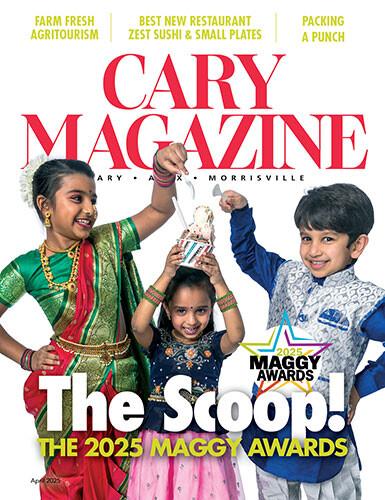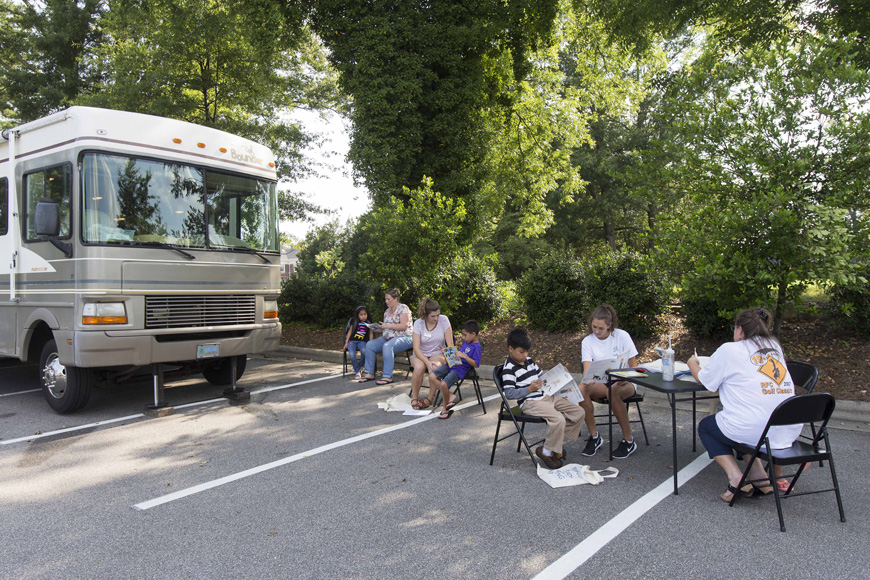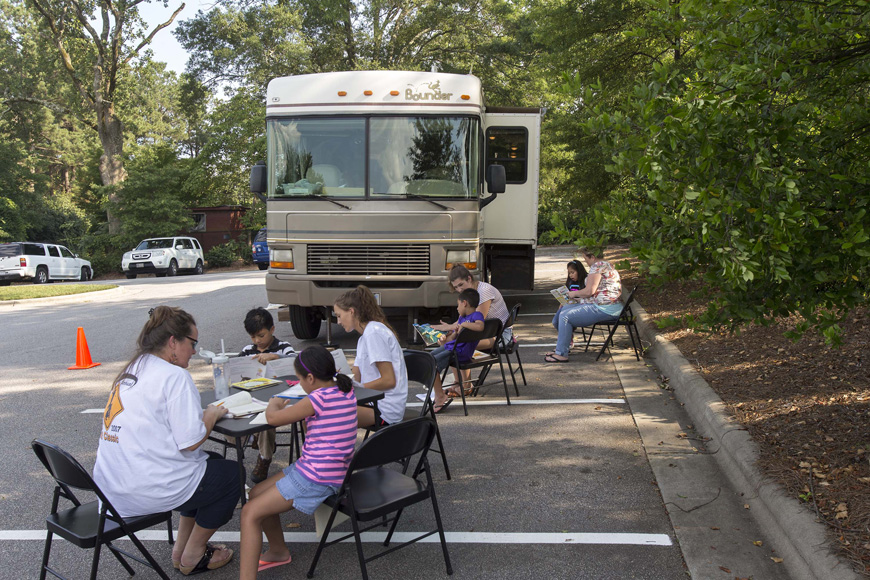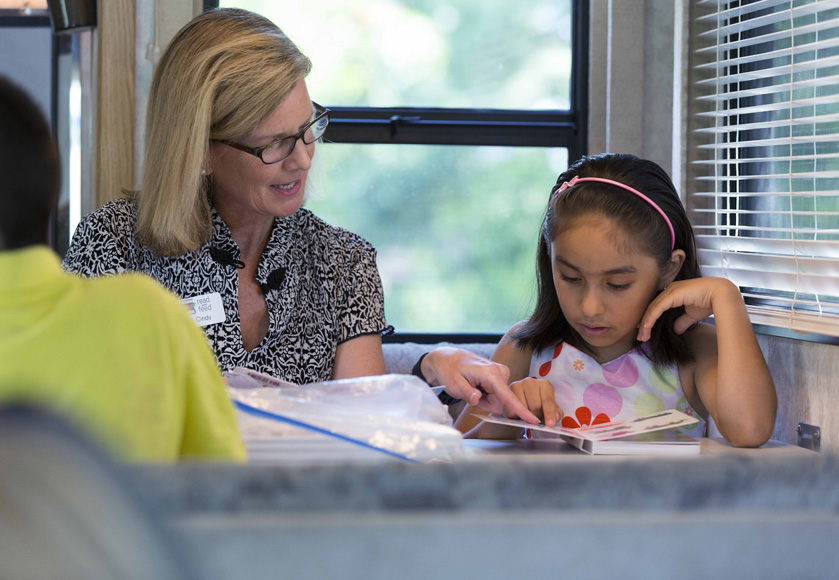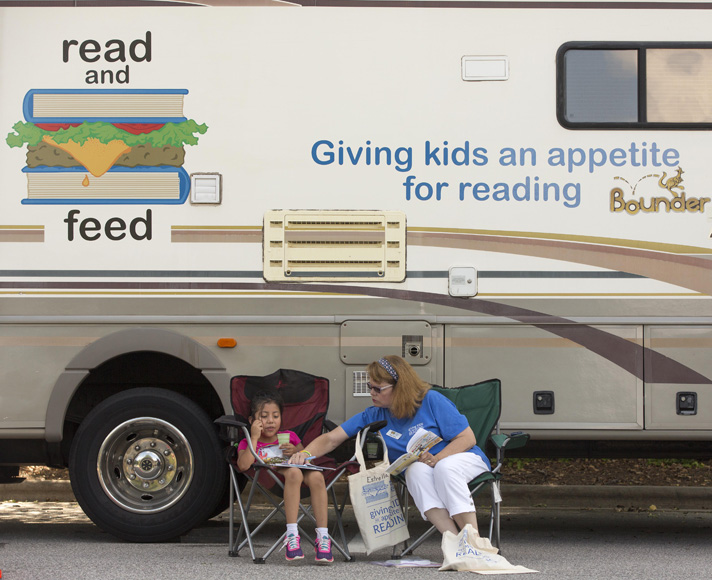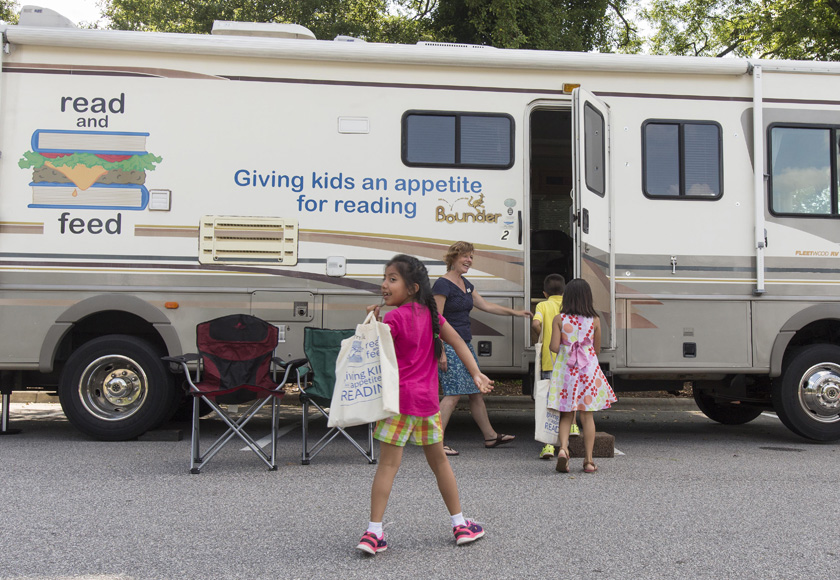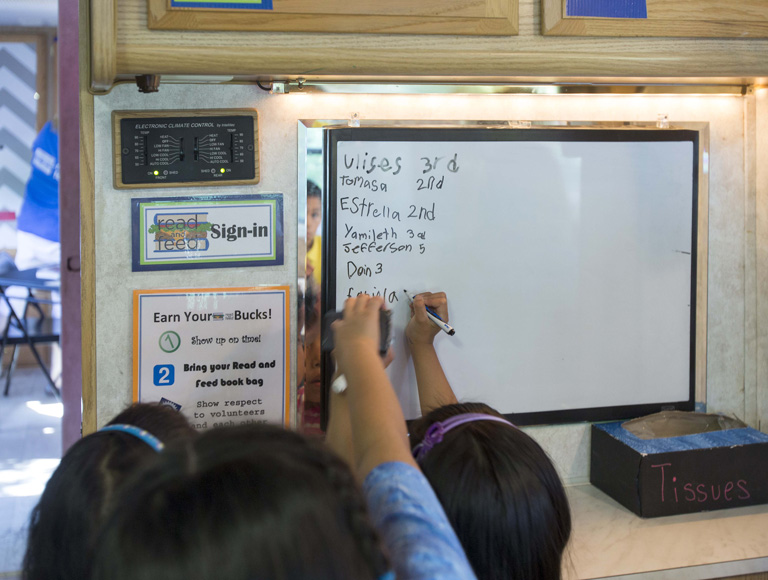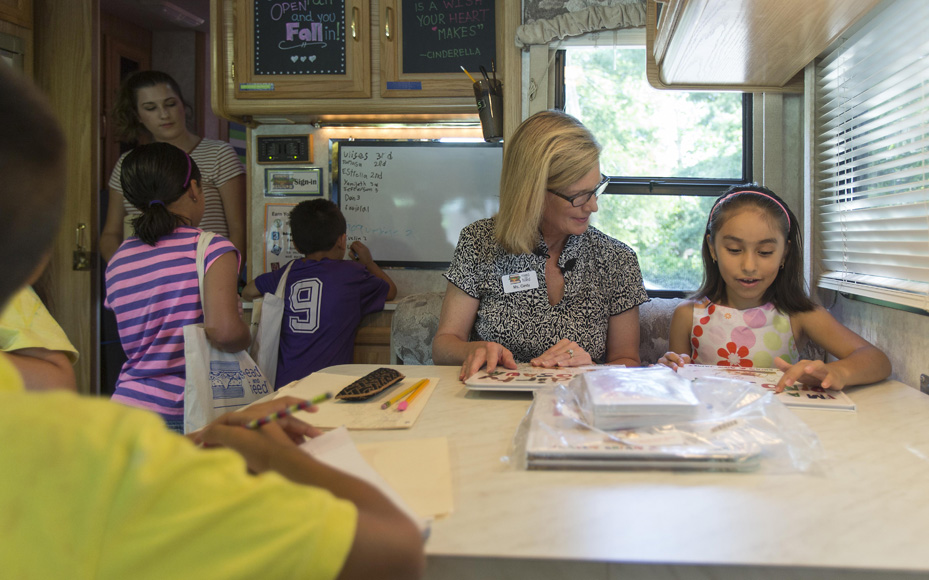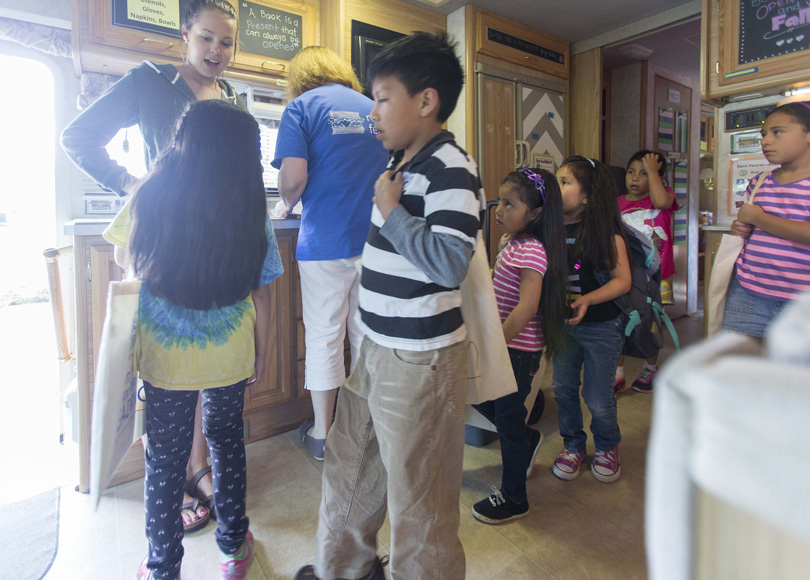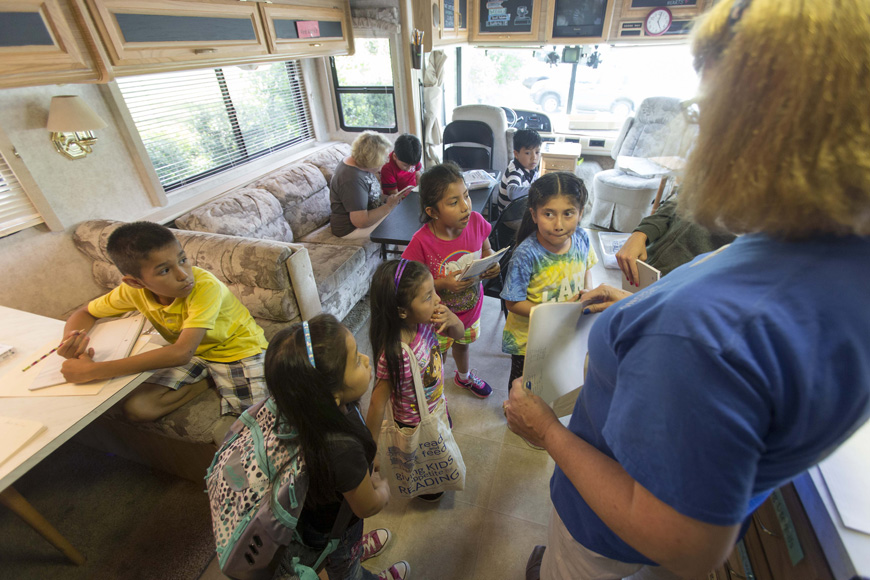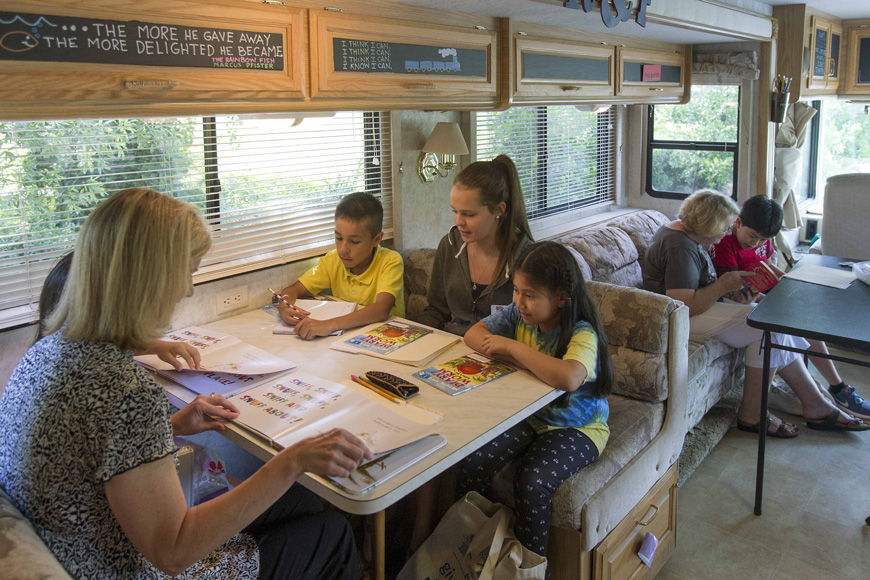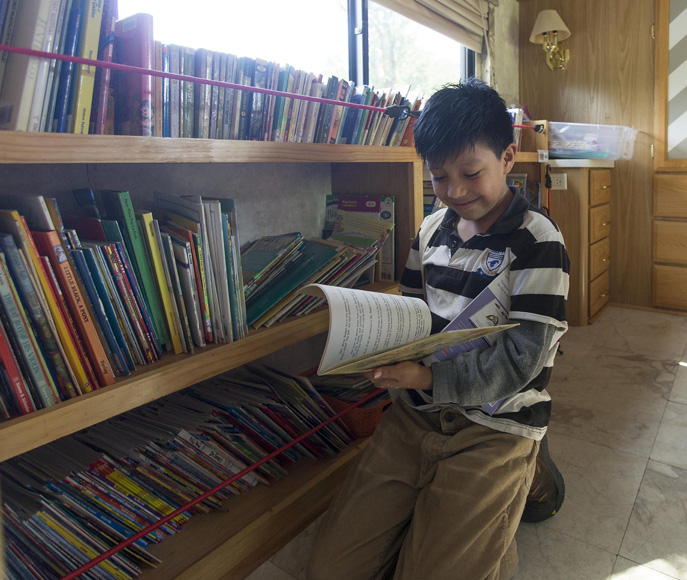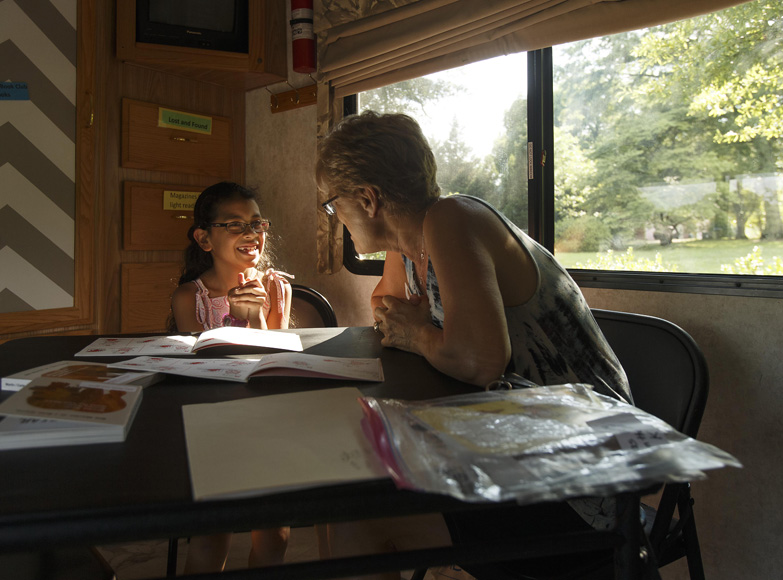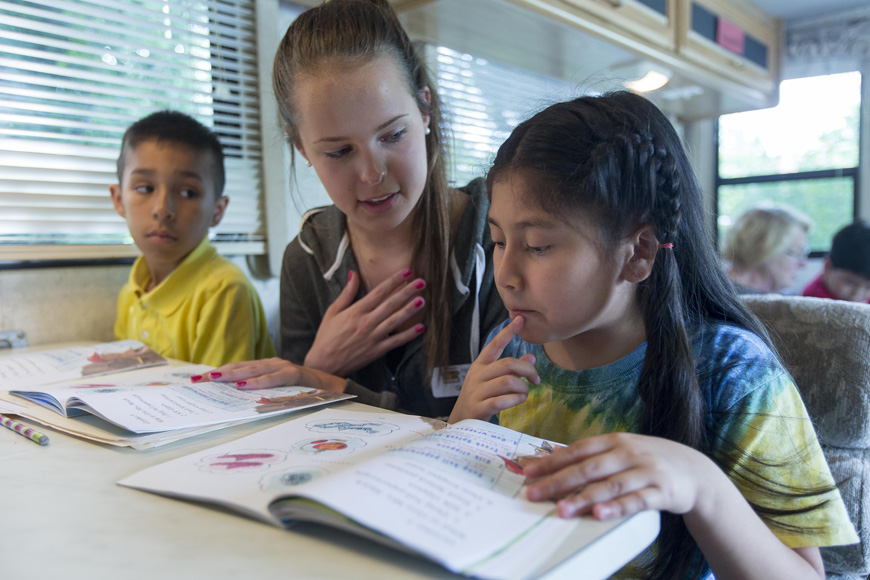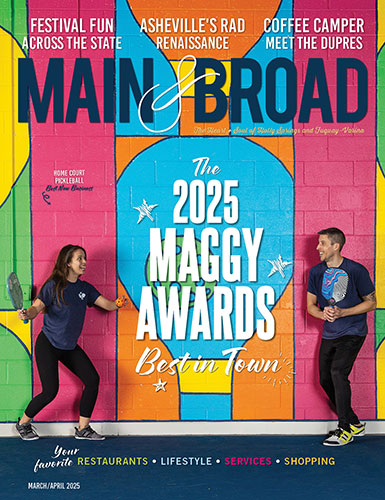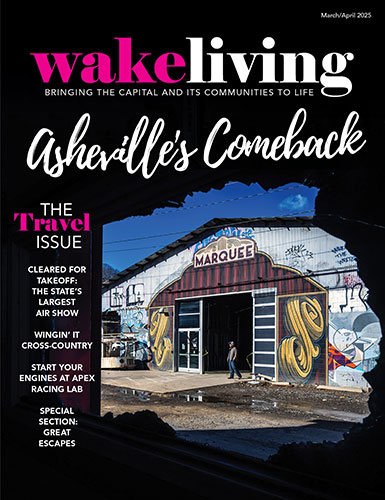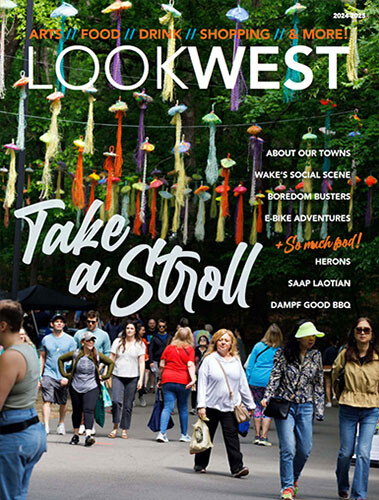On a warm Thursday evening, many children are playing video games or attending neighborhood swim practice. But in the parking lot behind First United Methodist Church in Cary, about 15 kids are excitedly bounding up the steps of an RV, many of them wearing book bags.
As they write their names on the sign-in board of Read and Feed’s mobile classroom, each student quickly finds his tutor. Soon, the sound of reading aloud — the only kind of reading done at Read and Feed — and occasional laughter echoes off the RV’s walls.
Read and Feed is an afterschool literacy program that employs a fleet of three mobile classrooms — retrofitted 38-foot RVs — as well as facility-based partners to deliver tutoring services and hot meals to elementary-aged students who may not have them otherwise.
“We work with at-risk, low-income children who are identified through our partner schools,” explained Kati Mullan, Read and Feed’s executive director. Most are at least one grade level behind in their reading.
Mullan says developing reading proficiency by third grade is vital for academic success and on-time graduation. But more than 50 percent of Wake County’s low-income third-graders failed to read at grade level last year, according to Read and Feed data.
“We want to reinforce what they’re learning in school, but not be an extension of school,” said Mullan. “We try to focus on reading comprehension as well. Sometimes a child will be able to read beautifully but have no idea what it means.”
The curriculum at Read and Feed is specifically designed with the help of students’ teachers; tutors use teachers’ comments to focus on areas that need extra attention.
Students are also provided with three books a week to take home in order to build personal libraries. The children choose those books, which Mullan says makes them more likely to read on their own.
Community partners
During her time as a volunteer at Northwoods Elementary School in Cary, Read and Feed founder Jan France saw that many low-income families had limited access to public libraries and struggled with food security. In 2007, she created the organization with one program site, eight students, and home-cooked meals. Now more than 600 children attend across 20 sites during the academic year, and meals are provided by partners like local restaurants, churches and most commonly, the Interfaith Food Shuttle.
The fleet of RVs was purchased with grant monies, and everything else — books, supplies, weekly rewards for the kids — is funded through individual, corporate or in-kind donations.
The staff still consists of three people — Mullan, volunteer and program coordinator Heather Cross, and operations administrator Jamie Buning — but Read and Feed thrives thanks to more than 400 volunteers who do everything from tutoring to driving the RVs.
Team lead Mary Rose Sefter understands what this special attention can mean for the growth of these students.
Nine-year-old Dain picks out a book to read. Participants are allowed to take home books to read on their own.
“I work in the Wake County school system, and seeing these kids who need some extra TLC, whether that’s the hot meal we provide or the tutoring and social skills they get, is just wonderful,” she said.
For more information about Read and Feed, or to get involved, visit readandfeed.org.
